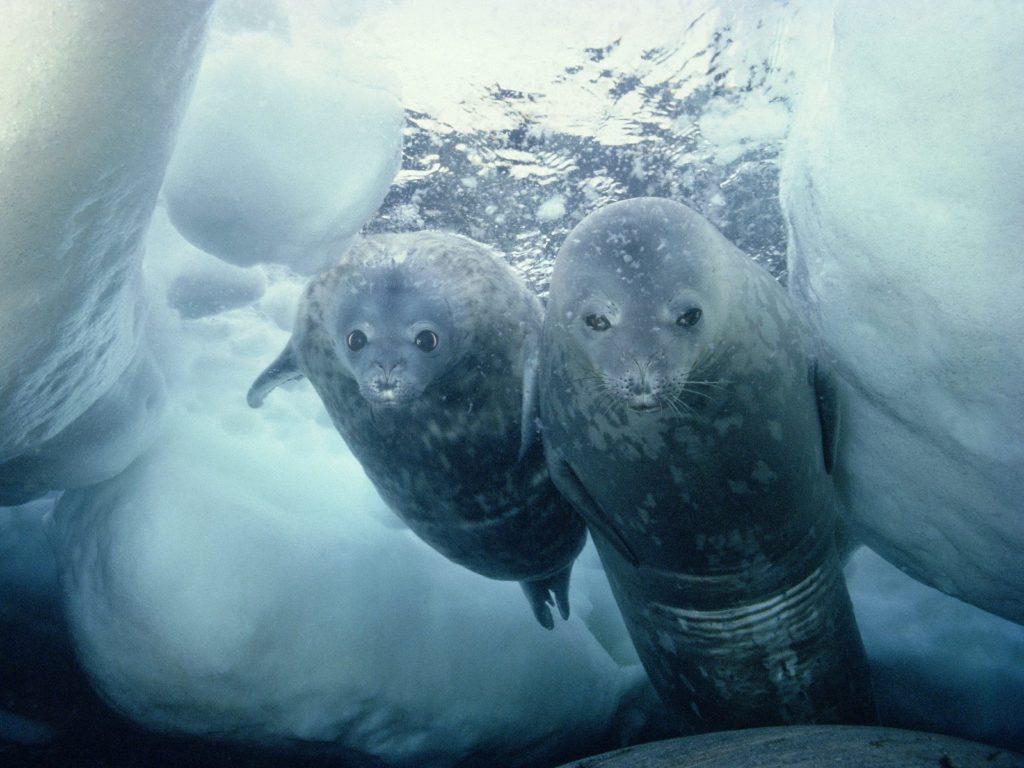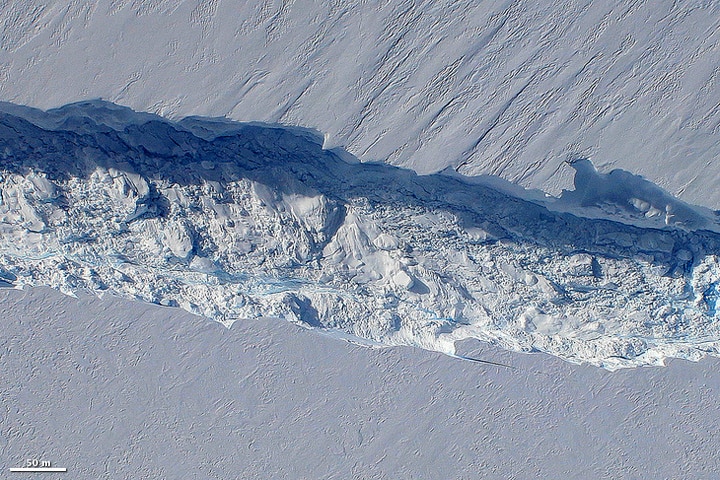A new study proposing a giga-scale geoengineering project in Antarctica has been grabbing media attention. The study, written by researchers at the Potsdam Institute for Climate Impact Research, suggests that one major source of sea level rise could be delayed by creating trillions of tonnes of artificial snow and shooting them onto two west Antarctic glaciers – Pine Island Glacier and Thwaites Glacier.
The proposal hypothesizes that 74 trillion tonnes of sea water could be pumped out of the ocean, desalinated, and sprayed over the glaciers to create a snow pack that would prevent their runaway collapse as ocean currents warm. Such a project would involve the building of 12,000 cold-weather-resistant wind turbines in the area.
“Devastating impact”
As the report’s author’s note, the hypothetical geoengineering project would involve ecological devastation on a massive scale, including “the loss of a unique natural reserve” with huge disruptions to sensitive Antarctic marine habitat.

“Potential hazards coming along with such an enormous operation would be difficult to anticipate and hard to handle,” the authors write, “likely having devastating impact.”
Is this an effort to scare governments into action to replace the fossil fuel industry? If so, the report’s authors are keeping a straight face. “Despite its disruptive character, the intervention,” they continue, could prevent sea level rise in some of the “the world’s most populous areas.”
Anders Levermann, a professor at the Institute who authored the study along with Johannes Feldmann and Matthias Mengel, told the online publication Earther: “It is up to society to make this choice – it can’t shy away from making decisions.”
Promoting geoengineering irresponsibly distracts from available climate actions
This is a shocking position for a respected climate research institute to take. And it’s a surprising one, given that The Potsdam Institute for Climate Impact Research has explicitly avoided legitimizing geoengineering in the past. Institute director Johan Rockström has, in the past, expressed the extreme urgency of climate change while excluding ocean geoengineering from his list of solutions.
While it’s clear that international media has a weakness for new, sensational proposals, it is – whatever their intention – irresponsible for Levermann and others to contribute to distractions from the well-established climate solutions that don’t involve creating vast ecological sacrifice zones.
More crucially, the suggestion that geoengineering should be considered while much easier solutions – like the richest 10% of the global population reducing consumption to EU levels – receive far less coverage, is itself reckless and unbefitting of the scientific credentials of the study’s authors.
Geoengineering ban and treaties still in effect
Seldom mentioned in the media coverage is the current moratoria on geoengineering at both the UN Convention on Biodiversity and the regulatory framework on marine geoengineering at the London Convention. The latter specifically adopted a protocol to prohibit ocean fertilization, and regulate ocean-based geoengineering. Together they cover all forms of geoengineering beyond computer modelling and tightly controlled small-scale experiments.
The project could also l involve significant violation of the Antarctic Treaty, which limits activities on the icy continent to scientific exploration, and to the Madrid Protocol, a 1991 addition that defines the continent as a nature preserve and requires environmental assessments prior to any activity.
A useful shock?
It’s possible that absurd proposals like spraying 74 trillion tonnes of artificial snow onto Antarctic glaciers can play an important role in highlighting just how easy and effective real solutions are. Rapid reduction of carbon emissions, a managed phase-out of the fossil fuel sector led by industrialized countries, support for food systems based on agroecological peasant farming, a zero-waste circular economy and rapid electrification of transportation systems all look easy compared to absurd proposals like the ones contemplated by the Institute. And more appealing as well, given that their side effects are healthier humans and ecosystems rather than devastation of delicate habitats. Unlike Antarctic snow cannons, these measures would also strike at the root cause of climate by eliminating much of the cause of climate change.
However, that is not the effect this proposal – and others like it – are having. Serious climate researchers must find new ways to put the emphasis where it belongs: transforming our economy away from fossil fuels, throw-away culture and industrial agriculture, and countering the misinformation and political power of the fossil fuel giants and other high-pollution industries.

